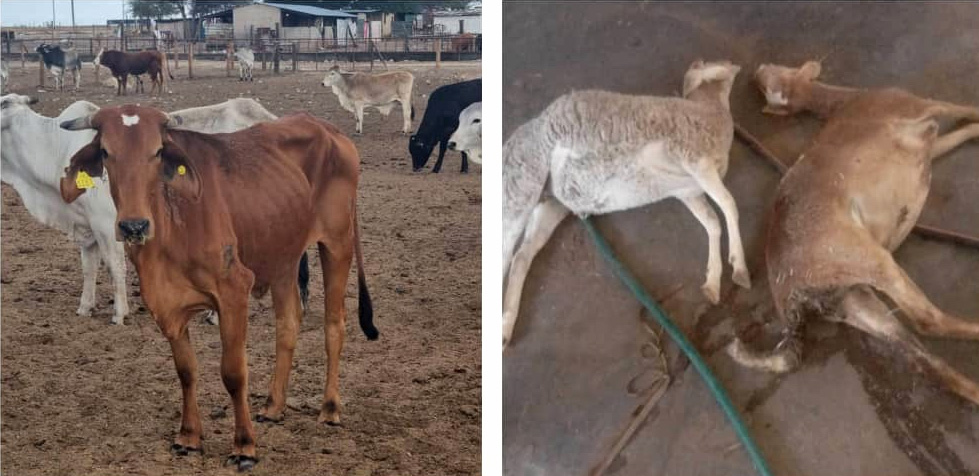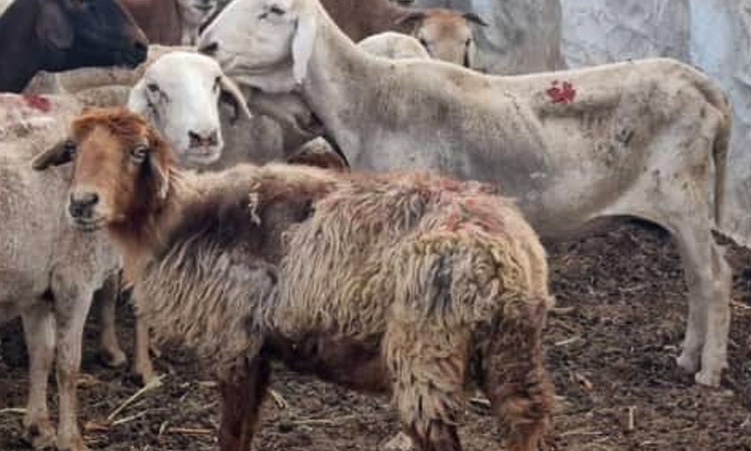Otjozondjupa farmer Jannie Labuschagne says he lost 17 sheep worth N$30 000 in nine days due to drought.
He says this comes after the Ministry of Agriculture, Water and Land Reform blocked the importation of animal feed from Angola.
Labuschagne says the ministry imports animal feed from South Africa, Zambia and Angola.
“At the moment, we have a problem in South Africa. There has been a shortage, and the prices are very, very high,” Labuschagne says.
According to Labuschagne, the ministry has been importing animal feed from Angola for about three months.
“Last week Friday, the Disclosure and Barring Service (DBS) just decided the permit is not in order, and they stopped the whole import from Angola,” Labuschagne claims.
Additionally, he says the DBS declared that “Angola is a foot and mouth disease (FMD) zone”, which is why they cannot allow imports until further notice.

However, acting chief veterinary officer Johannes Shoopala says the ministry has not blocked farmers from importing animal feeds from neighbouring countries.
He says all farmers are required to apply for permits to import from facilities free of FMD.
Shoopala says free zones are recognised by the World Organisation for Animal Health, and South Africa has lost free zone status to export to Namibia.
“No animal feed from Angola was confiscated. We advise them to make arrangements to quarantine under veterinary supervision for 30 days if not coming from the approved facility,” Shoopala says.
Additionally, he says Angola has approved facilities that are certified by the Angolan Veterinary Authority.
He further says farmers who are denied permits to import from South Africa are due to South Africa not granting approval.
Shoopala says certification is not granted by Namibia.
Stay informed with The Namibian – your source for credible journalism. Get in-depth reporting and opinions for
only N$85 a month. Invest in journalism, invest in democracy –
Subscribe Now!










